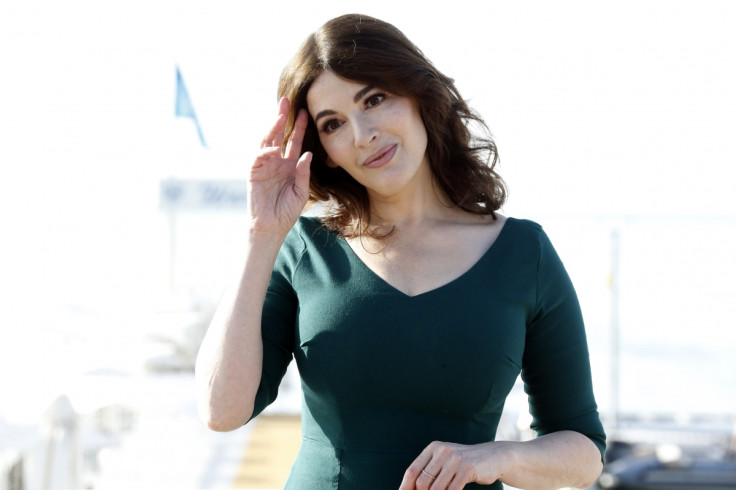There's a fine line between 'clean eating' and eating disorders

Nigella Lawson is inescapable at the moment. She's all over our screens, radios and magazines licking oozing chocolate off backs of spoons, sighing heavily and clinking glasses with fake friends in her mock-up kitchen. But away from her seduction, she's actually done something really good, different and desperately refreshing. If, like me, you're sick of Jamie Oliver ramming health warnings down our throats, casting sugar to hell and comparing obesity to terrorism, then you're best off listening to Nigella instead.
Last week, Nigella, who hates the term "healthy eating" as much as I hate my encyclopaedic knowledge of calories, told BBC's Women's Hour: "I think behind the notion of 'clean eating' is an implication that any other form of eating is dirty or shameful." AT LAST. "I don't like extremes... I think that food should not be used as a way of persecuting oneself and I think really one should look to get pleasure about what's good, rather than either think: 'Oh no, that's dirty, bad or sinful' or 'eating is virtuous'."
I couldn't agree more. Having battled eating disorders and their remnants for over half my life, I've said for a long time that I believe much of the nutritional "education" we're giving to children has the potential to be more harmful than helpful. Years ago, I started to notice advertising campaigns promising "Guilt-free goodness", "New ways to be naughty" or asking: "What will you GAIN when you LOSE?" The emphasis and intensity of the message that some foods are good and healthy and others are bad and shameful I'm sure has increased year on year − and, coincidentally or not, so has the number of hospital admissions for people with eating disorders.
Having battled eating disorders for over half my life, I believe much of the nutritional 'education' we're giving to children has the potential to be more harmful than helpful
It would be dismissive of me or anyone to make a direct link between clean eating/healthy eating (whatever you want to call it) and the onset of eating disorders, but it is important to consider the impact these fads, trends and the language that surrounds them is having on us, without ignoring the fact that eating routines can lead to obsessions that can become dangerous. Nigella went as far as to say that people use certain diets "as a way to hide an eating disorder or a great sense of unhappiness with their own body," and I'm right there with her.
Most students live on a pretty limited diet, but as a first year anorexic living 133 miles away from my family for the first time, it was my chance to whittle my already insufficient intake down a ridiculous amount. Rather than the usual staples of own-brand cereal, beans on toast, pasta and the odd drunken kebab, mine consisted of cucumber, celery, sugar-free jelly and Diet Coke. It didn't feel as if there were that many options, so what I ate was simple, strict and sickeningly monotonous.
After years of starvation and time in hospital, I crumbled and gave in to all the foods I'd restricted myself from, giving way − as many anorexics do − to bulimia. There followed many more years of cravings and restriction and gluttony and guilt and self-hate and self-punishment. Food was something that others enjoyed, it brought people together, but it left me feeling hurt, desperate, confused and depressed.
Since the age of just seven, I had created for myself a set of rules, routines and beliefs, and the longer I had lived with them, the more illogical and ill they and I became. They were powerful, they ruled my whole life and to try to recover from my eating disorders meant a massive amount of unpicking and unlearning. I'm still going through that process now.
Eleven years on from being a student scared to eat a cherry tomato, I'm in the big Asda across from City's stadium and I see "spaghetti" made out of squash, cucumber and carrot, all ready made in little tubs offering themselves as a healthy alternative to noodles or pasta. "Here, have some veg with your vegetables..."
There's packets of "cauliflower rice", only it's not rice, it's 100% cauliflower that has been shaped and packaged to look like rice. A stupid part of my old leftover anorexic brain tells me I should try it, as it says, as an alternative to rice or pasta. I pick it up and study it, wishing they made this kind of stuff a decade ago. I leave it and carry on with my shopping − but it's there, on my mind.
Some people will 'spiralise' anything that avoids them digesting carbohydrates
It's all over Instagram and Twitter too. Some people will "spiralise" anything that avoids them digesting carbohydrates. It's all thrust in our faces and bellies labelled as "healthy" and "clean" and "balanced" but really, this moral push away from carbs or fats or sugars is about as balanced (although maybe not as extreme) as the "diet" that made me faint and fuzzy and lifeless for so many years.
The worry is that a lot of what we think of as healthy now, and the language we use to talk about and sell food, is leaning towards some of the language, thoughts and attitudes that we attribute to many common eating disorders.
In short, if I find myself wishing that "eat clean" was a thing when I was in the depths of anorexia, then it is something to be aware of and concerned about − just as much as we are about obesity. Both hurt, both kill. It's time we found real balance.
Ilona Burton is a television assistant producer, mental health campaigner and writer. She writes for The Independent, Mind Charity and is a Time to Change champion.
© Copyright IBTimes 2024. All rights reserved.






